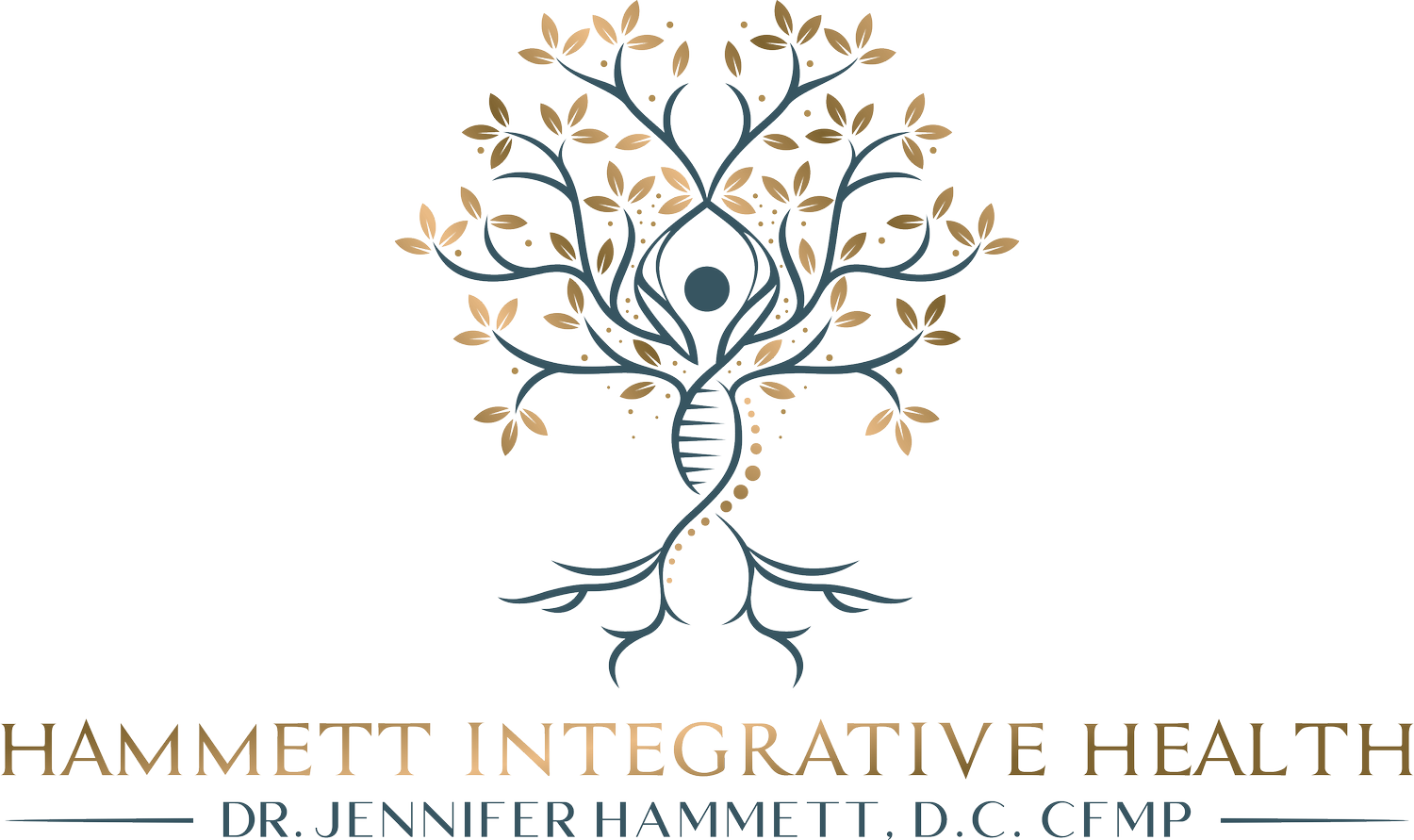Nutrigenomics
Take a minute to write an introduction that is short, sweet, and to the point. If you sell something, use this space to describe it in detail and tell us why we should make a purchase. Tap into your creativity. You’ve got this.
What Is nutrigenomics?
Nutrigenomics is a field of study that explores the interactions between genes, nutrition, and health. The goal of nutrigenomics is to understand how nutrients and other bioactive compounds in food can affect gene expression and how this, in turn, can impact health outcomes.
As a practitioner, I use nutrigenomics to personalize nutrition and supplement recommendations for my patients. By analyzing an individual's genetic makeup, I can identify specific genetic variations that may impact nutrient metabolism, absorption, or utilization.
With this information, I can create a personalized nutrition plan that takes into account an individual's unique genetic profile, allowing for optimal nutrient intake and minimizing the risk of nutrient deficiencies.
Studies have found that personalized nutrition plans based on an individual's genetic profile improved weight loss outcomes compared to a standardized diet plan.
Another study showed that nutrigenomics-based interventions reduced the risk of developing chronic diseases, such as cardiovascular disease and diabetes.
In my practice, I have seen excellent outcomes. By using nutrigenomics, I am able to provide my patients with highly personalized nutrition and supplementation recommendation that are tailored to their individual needs, genetic makeup, and health goals.
“This approach has helped many of my patients achieve their health and wellness goals and improve their overall quality of life.”
— Dr. Hammett
Symptoms
Each genetic SNPs, has its own set of potential symptoms or health effects. Additionally, not all SNPs necessarily cause symptoms or health problems, and the impact of a SNP can also depend on various environmental and lifestyle factors.
Below are some examples of symptoms or health effects that could potentially be associated with certain nutrigenomic SNPs:
Difficulty metabolizing caffeine: A small gene modification has been linked to slower caffeine metabolism, which could lead to symptoms such as jitteriness, insomnia, or rapid heartbeat when consuming caffeine.
Impaired folate metabolism: A small gene modification can affect the body's ability to convert folic acid into its active form, potentially leading to symptoms such as fatigue, anemia, or birth defects in pregnant women.
Increased risk of inflammation: small gene modification related to inflammation, such as TNF-alpha or IL-6, could contribute to chronic inflammation and increase the risk of conditions such as arthritis or cardiovascular disease.
Impaired detoxification: small gene modification involved in detoxification pathways, such as GSTM1 or NAT2, could lead to reduced ability to eliminate toxins from the body and potentially contribute to health issues such as cancer or liver disease.
Impaired glucose metabolism: small gene modification related to insulin sensitivity, such as TCF7L2, could lead to impaired glucose metabolism and potentially contribute to conditions such as type 2 diabetes.
10 examples of how nutrigenomics can improve your life
Personalized Nutrition: Nutrigenomics can help determine your unique genetic makeup and dietary requirements. With this knowledge, you can tailor your diet to meet your individual needs, improving overall health and well-being.
Disease Prevention: Nutrigenomics can identify genetic variations that increase your risk of certain diseases. Armed with this information, you can take steps to reduce your risk through dietary changes, lifestyle modifications, and targeted nutrient supplementation.
Weight Management: Nutrigenomics can help identify genes that affect your metabolism and predispose you to obesity. With this information, you can tailor your diet and exercise regimen to promote weight loss and maintain a healthy weight.
4. Sports Performance: Nutrigenomics can help athletes optimize their diet to improve endurance, speed, and strength. By identifying genetic variations that affect energy metabolism, nutrient utilization, and recovery, athletes can tailor their diet to improve performance and reduce the risk of injury.
5. Nutrient Absorption: Nutrigenomics can help identify genetic variations that affect nutrient absorption and utilization. With this information, you can tailor your diet to include foods and supplements that are better absorbed and utilized by your body.
6. Gut Health: Nutrigenomics can help identify genetic variations that affect gut health, including gut microbiome composition and function. With this information, you can tailor your diet to promote a healthy gut and reduce the risk of gastrointestinal disorders.
7. Food Allergies: and Intolerances: Nutrigenomics can help identify genetic variations that affect food sensitivities and allergies. With this information, you can tailor your diet to avoid trigger foods and reduce the risk of adverse reactions.
8. Aging: Nutrigenomics can help identify genetic variations that affect the aging process, including the development of age-related diseases. With this information, you can tailor your diet to promote healthy aging and reduce the risk of chronic diseases.
9. Mental Health: Nutrigenomics can help identify genetic variations that affect mental health, including mood disorders and cognitive function. With this information, you can tailor your diet to support optimal brain function and reduce the risk of mental health disorders.
10. Fertility and Pregnancy: Nutrigenomics can help identify genetic variations that affect fertility and pregnancy outcomes. With this information, you can tailor your diet to support fertility and a healthy pregnancy.
Our treatment goals for you
At Hammett Integrative Health our treatment goal for your nutrigenomic SNPs differ from traditional healthcare approaches because we focus on personalized nutrition and lifestyle interventions that address your unique genetic makeup. By identifying specific genetic variations, we can…
Tailor interventions to optimize nutrient absorption.
Improve detoxification pathways.
Reduce inflammation, among other things.
Our approach recognizes that there is no one-size-fits-all solution to health, and we work with our clients to create highly targeted treatment plans that are customized to their genetic profile, ultimately leading to better health outcomes.






